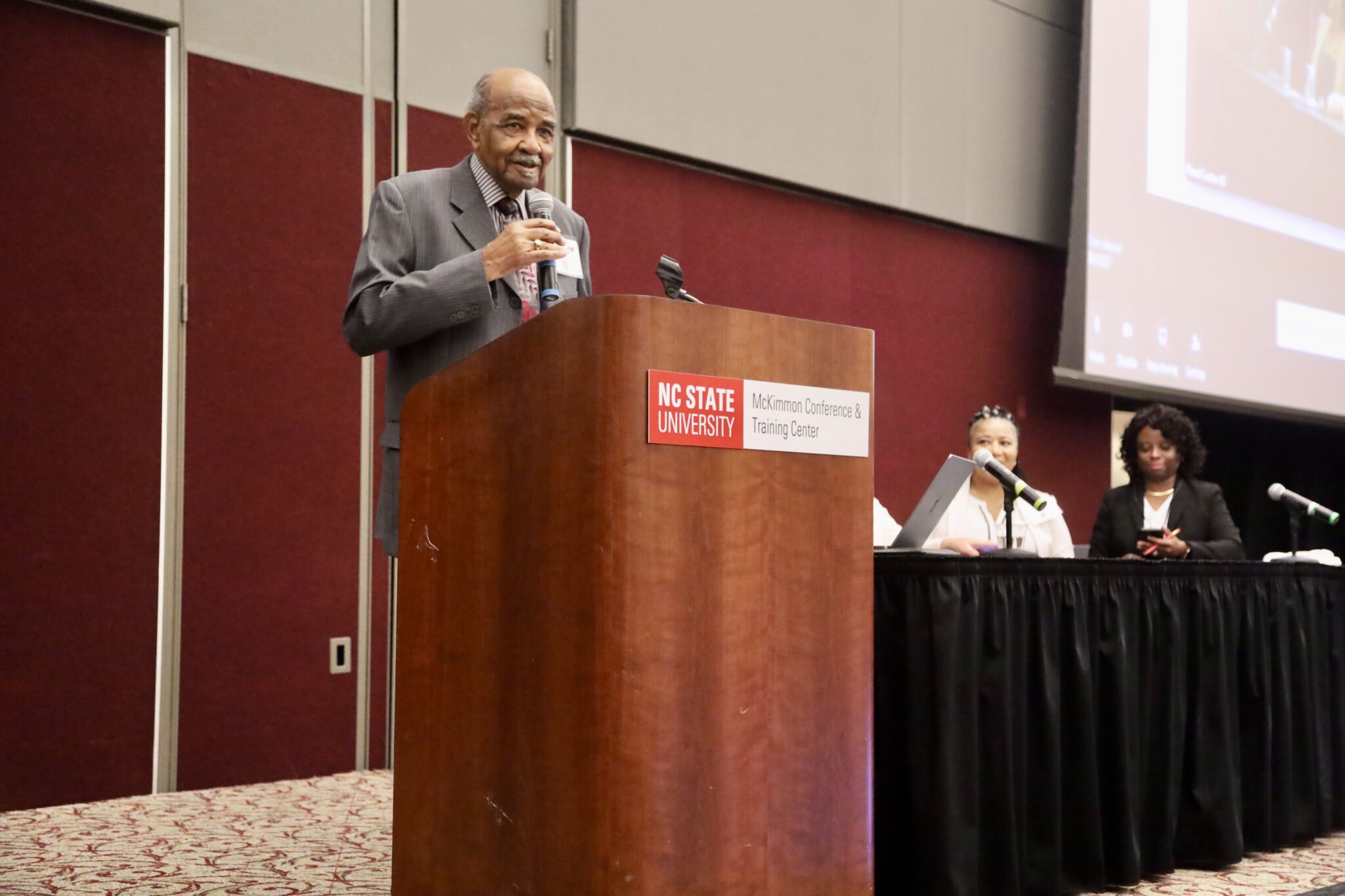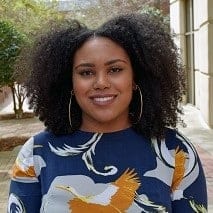Using your voice as a tool for advocacy, action, and justice is central to the creation of this nation. It has been the foundation of every change movement.
However, over the past two years, we have seen the repeal of some of the most influential civil rights legislation. This rollback of rights underscores the importance of individuals using their voices to advocate for change.
To be specific, we have seen the overturning of Roe v. Wade,[1] Affirmative Action in Higher Education,[2] and most recently, in North Carolina, during the 70th anniversary of Brown v. Board,[3] the UNC Board of Governors unanimously decided to repeal and replace its existing diversity and inclusion policy that “sought to foster an inclusive environment.”[4]
These decisions fail to capture or support the needs of those most impacted.[5] Research[6] shows that students face significant barriers to equitable access to educational resources and opportunities. The impacts of these barriers have not only resulted in substantial academic challenges but have severely disrupted students’ social and mental well-being across the nation.
A recent State of Student Mental Health[7] report reveals that 85% of teachers, counselors, administrators, and other stakeholders working on the front lines with students “agree or strongly agree that students seem more stressed and anxious than in previous school years.” These same statistics and impacts can be heightened for students of color and those from traditionally marginalized communities. According to research, addressing the social, emotional, and academic needs of youth from these historically marginalized groups is a pressing matter as it ultimately threatens the wellness of communities and the nation’s future.
Audre Lorde[8], an American writer, professor, philosopher, intersectional feminist, poet, and civil rights activist, once said, “I have come to believe over and over again that what is most important to me must be spoken, made verbal and shared, even at the risk of having it bruised or misunderstood.”[9] Lorde describes the power and complexity of “transforming silence into language and action.”
This work has been central to my mission as it explains the dangers, risks, and rewards we face when we break our silence and speak out against injustices. We must remember the power of our voices and their impact in advocating for change.
Despite being excluded from these influential decisions, students have consistently been at the forefront of issues of inequality,[10] leading to movements like the Freedom Day Protest[11] and Greensboro Sit-ins.[12] Today, students are continuing this legacy, using their voices to effect change in schools, districts, and the education system. Their advocacy efforts mirror the spirit of the infamous Greensboro Four and the Student Nonviolence Coordinating Committee (SNCC)[13], providing a roadmap to bridge differences and build systems that protect and support our society’s most vulnerable and future leaders.
Their efforts beg us to ask ourselves: If our most innocent and vulnerable understand the importance of breaking their silence and facing the risks of disrupting long-standing inequities, why can’t we?
This question rings true especially in the celebration of the historical legacy of Juneteenth:[14] A day when those actions of the most vulnerable paved the way for so many who came after them to create change.
As we continue celebrating the legacy of those such as Audre Lorde, Dr. Dudley Flood,[15] Dorthy Counts-Scoggins,[16] Pauli Murray,[17] and the many activists who were instrumental in the fight for freedom, their actions serve as a reminder of the power of individual voices in effecting change.
You must now ask yourself: What are the words you do not yet have? What do you need to say?
Change happens when we use our voices to influence the action needed to remove barriers, creating the just society we want to see.
[1] “Supreme Court overturns Roe v. Wade, ending right to abortion upheld for decades” accessed June 17th, https://www.npr.org/2022/06/24/1102305878/supreme-court-abortion-roe-v-wade-decision-overturn
[2] “Supreme Court Affirmative Action Ruling” accessed June 17th, https://floodcenter.org/2023/supreme-court-affirmative-action-ruling-2/
[3] “Brown v. Board of Education 70th Anniversary
Initiatives” accessed June 17th, https://nmaahc.si.edu/explore/initiatives/brown-v-board-70
[4] “UNC System Board of Governors votes to repeal DEI policy” accessed June 17th, https://www.cnn.com/2024/05/23/us/unc-dei-policy-vote-reaj/index.html
[5] “Southern Student Action Coalition files complaint against UNC System, says students were denied access to public meeting” accessed June 17th, https://www.dailytarheel.com/article/2024/04/university-bog-public-seats
[6] “Education and the Path to One Nation, Indivisible” accessed June 17th https://learningpolicyinstitute.org/product/education-path-one-nation-indivisible-brief
[7] “5 Key Takeaways From the State of Student Mental Health Survey” accessed June17th https://ecins.com/us/5-key-takeaways-from-the-state-of-student-mental-health-survey/?domain=us
[8] “Audre Lorde” accessed June 17th https://pbsnc.pbslearningmedia.org/resource/fp19.lgbtq.lorde/audre-lorde/
[9] The Transformation of Silence into Language and Action* accessed June17th, chrome-extension://efaidnbmnnnibpcajpcglclefindmkaj/https://classics.fas.harvard.edu/files/classics/files/bowdoin_latin_silenceintoaction.pdf
[10]“ In pictures: A lookback at student protest movements in the US” accessed June 17th, https://www.cnn.com/2024/04/30/us/photos-student-protest-movements-reaj/index.html
[11] “The 1964 Freedom Day Boycott in New York City” accessed June 17th, https://www.tenement.org/blog/the-1964-freedom-day-boycott-in-new-york-city/
[12] “Greensboro Sit-In” Accessed June 17th, https://www.history.com/topics/black-history/the-greensboro-sit-in
[13] “The Student Nonviolent Coordinating Committee (SNCC)” accessed June 17th, https://www.archives.gov/research/african-americans/black-power/sncc#:~:text=In%20the%20early%201960s%2C%20young,protest%20the%20segregation%20of%20restaurants.
[14] “The Historical Legacy of Juneteenth” accessed June 17th, https://nmaahc.si.edu/explore/stories/historical-legacy-juneteenth
[15] 2021 North Carolina Awards: Dr. Dudley Flood





